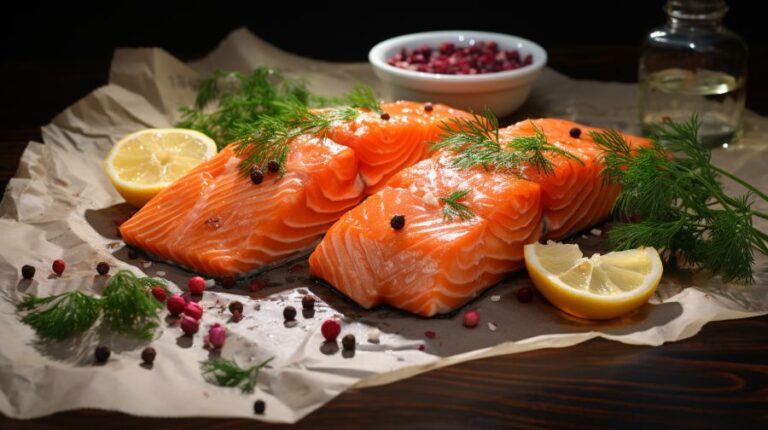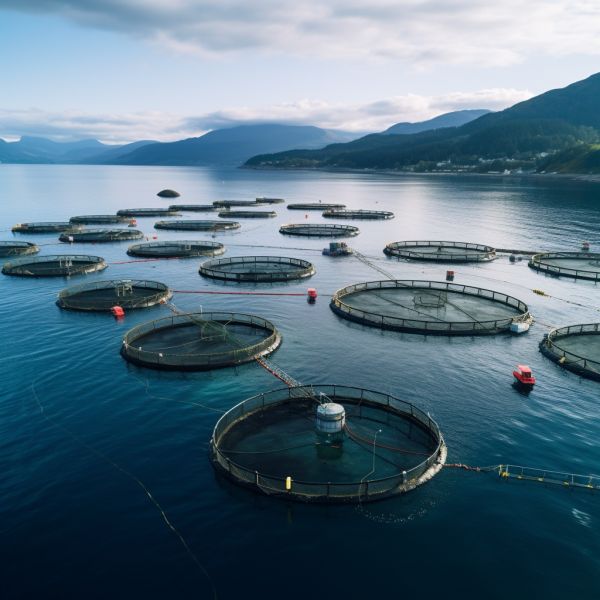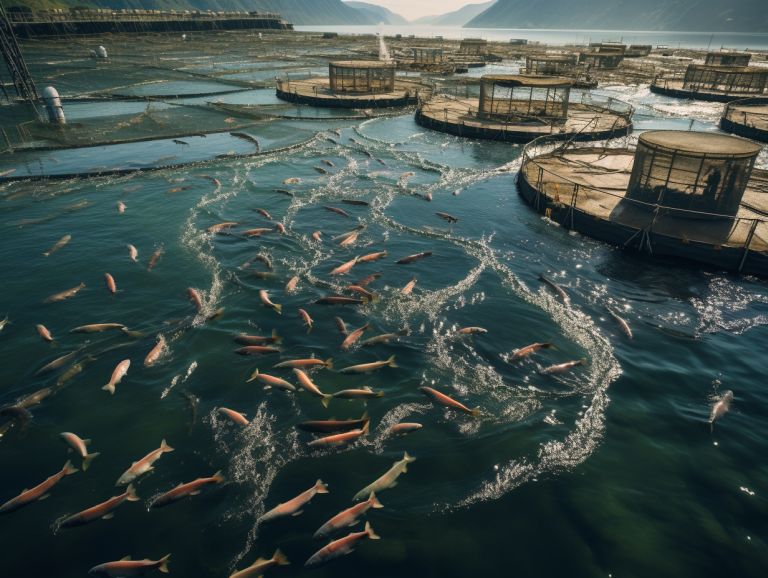
Is All Salmon Good For You?
Salmon, known for its delectable flavor and perceived health benefits, stands as the second most popular seafood in the U.S. We all love a juicy, tender morsel of grilled salmon every now and then. Indeed, a bit of Salmon once in a while can be good for your health. Even Johanna Budwig recommended it as an occasional source of Omega-3. But this delicious fish has a dark side. If you’re not aware of it, eating salmon can even be dangerous for your health.
What Type of Salmon Should You Avoid?

How can it be that Salmon can be both healthy and dangerous simultaneously? It’s all about the type of Salmon.
With the relentless demand for seafood, the fishing industry has turned to a new approach: factory-farmed salmon. In these intensive units, vast numbers of fish are crammed into confined pens suspended within water bodies.
And, just like other animals raised in such conditions, these fish face stress and disease. This method of obtaining fish is not entirely new; it actually started back in the 1960s.
Over the years, farm-raised salmon has become so common that it now constitutes a whopping 75% of global salmon consumption.
But since farm-raised salmon is so common, does this mean it’s safe to eat?
Health Concerns Behind Farm-Raised Salmon
A major concern behind farm-raised salmon is that it contains cancer-causing chemicals, specifically dioxins. Studies have shown dioxins to be highly toxic and can even disrupt hormones, impair immune systems, and elevate cancer risks.
Farm-raised salmon also contain polychlorinated biphenyls (PCBs). PCBs are persistent organic pollutants that continue to exist despite a ban on their production since 1977. PCBs are slow to break down and originate from hazardous waste sites, contaminating water bodies and entering the food chain, particularly affecting fish. Surprisingly, farmed salmon can contain 16 times the PCBs found in wild salmon! Research has associated PCBs with type 2 diabetes development, heightened heart attack risk, and even cancer.
In addition, while wild salmon obtain their nutritional content from a diverse diet of small invertebrates, factory-farmed salmon rely on processed feeds.
Adverse Effects on Our Environment

The repercussions of farmed salmon extend far beyond our plates, causing a severe toll on the delicate balance of marine ecosystems. The global cost of this devastation has been estimated at a staggering $50 billion between 2013 and 2019.
Escapes from salmon farms are not just one-time incidents. In 2017, more than 250,000 salmon escaped from their pens in Washington, resulting in a significant environmental setback. A study conducted by the Norwegian Institute for Nature Research (NINA) revealed widespread genetic introgression in over 50% of the wild populations tested. Such escapes can lead to the out-competition of native wildlife and the transmission of diseases to wild salmon and other fishes.
The fishing industry also contributes significantly to oceanic plastic pollution, leading to the deaths of countless marine creatures, including endangered species. Projections suggest that by 2050 there could be more plastic in the ocean than fish. The fishing industry’s casual disregard for plastic waste adds fuel to this environmental catastrophe. Studies have highlighted the severe pollution caused by uneaten food and waste within salmon pens. These pollutants disrupt the very ecosystems that salmon farms rely upon, contributing to a self-destructive cycle.
Scotland, Norway, Canada, and Chile stand as key players in the salmon farming arena, yet this practice exacts a heavy toll. In Scotland alone, fish mortality had quadrupled in 2019, a troubling trend predominantly attributed to sea lice infestations. These parasites eat the farmed fish alive.
Is It Still Safe to Eat Any Salmon?
There is nothing wrong with having a bit of salmon occasionally; it can actually be good for you. But it’s important to avoid farm-raised salmon and ensure that the salmon you’re eating is wild.
Choosing wild salmon over farmed salmon can help you avoid health problems and make sure you’re getting quality nutrition. This is just the beginning of your health journey, starting with the right diet choices. We’ll continue guiding you every step along the way. Click here to contact us.